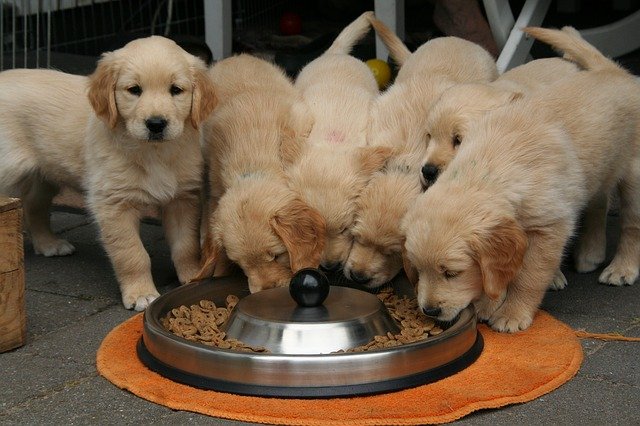
Why You Should Think Twice Before Feeding Your Pet a Grain-Free Diet
Nutrition is an important part of your pet’s overall health. Choosing the right food for your pet can be an overwhelming endeavor given all the choices on the market.
The Grain-Free Pet Food Trend Isn’t Supported by Science
Over the past few years there has been a growing trend in the pet food market for grain-free diets. There is a belief amongst pet owners, which is often perpetuated by pet food commercials that grain-free diets are healthier than diets containing grains. Unfortunately, this belief is not supported by evidence nor is it supported by any nutritional foundations.
Common Misconceptions About Grains in Pet Food
- “Whole grains are used as fillers in pet food.” The word “filler” implies that the ingredient has little or no nutritional value. However, whole grains in pet food do contribute key nutrients such as vitamins, minerals and essential fatty acids. Some grains even provide protein to the diet.
- “Grains cause food allergies.” A food allergy is an abnormal response to normal food or ingredients in a diet. Food allergies in dogs and cats are most commonly associated with the protein source in the diet (chicken, beef or dairy) and rarely associated with the grains in the diet.
- “Grain-free pet foods are carbohydrate free.” Grain-free diets often contain carbohydrates from other sources including sweet potatoes, which have a higher carbohydrate level than corn. Besides, carbohydrates are an important energy source and one of 6 basic nutrients (i.e. water, protein, fat, carbohydrates, vitamins and minerals).
- “Grains cause gluten intolerance.” Gluten intolerance is extremely rare in dogs, it has only been found in one inbred family of Irish Setters. Gluten intolerance is non-existent in cats.
Grain-Free Diets Might Harm Your Pet
When people choose to feed grain-free diets they are often spending more for a diet that may actually be causing harm to their pet’s health. Recently there has been an increase in heart disease in dogs eating certain types of diets. The FDA has announced that they are investigating a potential link between heart disease in dogs and boutique, exotic ingredient, and grain-free diets.
Heart Disease in Dogs Usually Has a Genetic Link
Historically, we have intermittently seen deficiencies in pet foods that have led to heart disease in dogs and cats, specifically taurine deficiency. Taurine is an amino acid that plays a role in the function of the heart muscle. Cats cannot make their own taurine, and therefore taurine is added to cat foods.
Unlike cats, dogs can synthesize taurine from components in their diet. They can, however, suffer from heart disease. Dilated cardiomyopathy (DCM) is a type of heart disease typically seen in large and giant breeds of dog, and is believed to involve a genetic component. DCM is a disease of the heart muscle that causes improper heart function due to heart enlargement. It can cause abnormal heart rhythms, congestive heart failure or even sudden death. DCM is diagnosed through echocardiography. Typical at risk breeds of dog include, Doberman Pinscher, Boxer, Great Dane, Newfoundland, Irish Wolfhound, Dalmatian, as well as, Cocker Spaniels.
A New Breed of Dog at Risk of Heart Disease
However, some dogs have been found to have a taurine deficiency, too. Most recently we have seen an increase in Golden Retrievers with taurine-deficiency associated cardiomyopathy.
The most recent concerns for diet associated DCM have included typically at risk breeds as well as breeds not commonly known to be at risk for DCM. The exact cause of the diet associated with DCM is not known, there are many theories, and further research is being conducted as we speak.
What we do know is that the common link amongst the cases is grain-free diets that use potatoes, lentils and other legumes (peas) as the main ingredient and/or carbohydrate source.
What Should I do if my Dog Eats a Grain-Free Diet?
If your dog is eating a grain-free diet we recommend changing to a diet that contains grains. Most nutritionists recommend using the WSAVA guidelines for selection of commercial pet diets. If you have any questions about your pet’s diet and/or which diet is best for your pet, please call your veterinarian.
– Dr. Meaghan Corbett
Spotsylvania Animal Hospital provides medical and surgical care for every stage of your pet's life including preventive wellness care exams and vaccines, spays/neuters, and a variety of specialized care for your dog or cat. Learn more about us!

